Former top cop Simon Overland to testify at Lawyer X royal commission
Former top cop Simon Overland is expected to tell the Lawyer X royal commission that Victoria Police was hooked on Nicola Gobbo and could not end the “mutually destructive” relationship.

True Crime
Don't miss out on the headlines from True Crime. Followed categories will be added to My News.
The top cop who oversaw the use of Lawyer X as an informer is expected to tell the royal commission that Victoria Police was hooked on Nicola Gobbo and could not end the relationship.
Simon Overland is also expected to admit that Gobbo played a key role in capturing drug baron Tony Mokbel when he was on the run in Greece.
The Herald Sun believes Mr Overland will single out Graham Ashton, the current chief commissioner, as one of the senior police figures who approved Gobbo’s controversial shift from secret informer 3838 to a witness against then-accused murderer, ex-cop Paul Dale.
Mr Ashton was aware of Gobbo’s informer status years before she became a witness in 2009, but he is expected to say he only learnt of the full extent of her informing later, and put an end to it. He has previously said that he did “nothing wrong’’.
When Mr Overland testifies next month, he is expected to describe the relationship between Gobbo and Victoria Police as being mutually destructive.
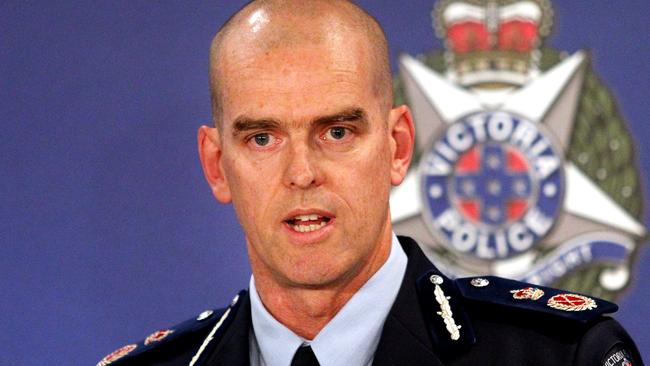
The Herald Sun believes that Mr Overland will testify that gangland supergrasses — who Gobbo helped turn to get prize convictions of gangland’s biggest names including Carl Williams and Mokbel — were used with the agreement of then-director of public prosecutions Paul Coghlan QC, and senior crown prosecutor Geoff Horgan QC.
The Lawyer X royal commission is exploring links to Gobbo’s informer conspiracy beyond Victoria Police to other agencies, including the Victorian Office of Public Prosecutions and Commonwealth bodies.
The Herald Sun is not suggesting that Mr Coghlan or Mr Horgan knew of Gobbo’s informer status.
Mr Overland is also expected to state that in 2004 he visited a gangland hitman in jail who became the first and most important supergrass to roll against other criminals.
The hitman was represented by Gobbo, who was not officially registered as an informer at the time.
That led to other hitmen, also clients of Gobbo, snitching on Gobbo’s biggest clients — Williams and Mokbel.
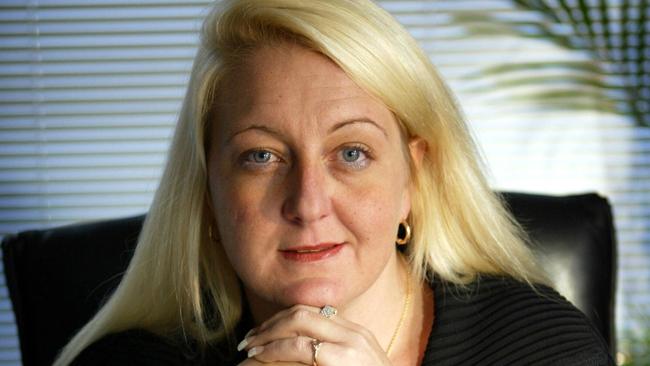
Mr Ashton is due to join Mr Overland, as well as other senior police figures, in giving royal commission evidence before Christmas.
Among others to testify will be Sir Ken Jones, Mr Overland’s once-deputy commissioner who fell out with his boss in part because of the force’s use of Gobbo.
Victoria Police’s head of legal services, Finn McRae, is also expected to provide details of who knew what and when, including the role of former police minister Bob Cameron, who approved a secret $2.88 million payment to Gobbo in 2010.
Mr Overland is expected to tell the commission that he expressed concerns about Gobbo’s secret-agent role because the gangland criminals she betrayed would probably find out.
Fears for her safety led to a high-level police meeting eight months after her 2005 registration. Three options were discussed, including her deactivation as an informer.
But the force ignored its own advice to terminate her secret career. Instead, the meeting agreed that Gobbo should, posing as a lawyer, speak to allegedly dirty cops about their supposed involvement in gangland murders.
Further exit strategies aimed at preserving Gobbo’s life did not materialise, and Mr Overland is expected to blame police dependence on her and her own reckless behaviour.
The decision to turn Gobbo from informer to witness — in a bid to convict accused murderer Dale in 2009 — was made by Mr Ashton and current assistant commissioner Luke Cornelius as well as himself, Mr Overland will claim.
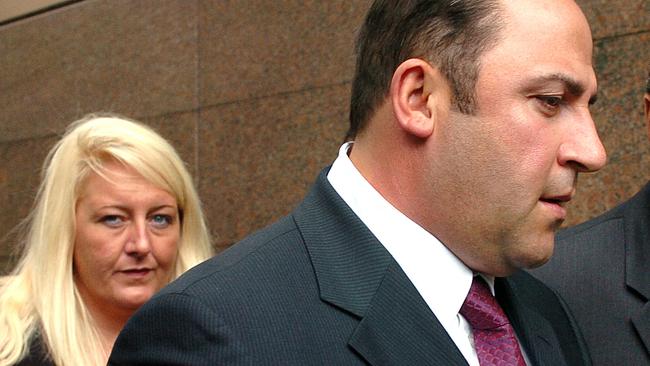
Even then, Gobbo resisted police overtures to protect her despite mounting threats to her safety.
And Gobbo continued to provide information against gangland’s biggest names after she was deregistered as 3838 in 2009.
Mr Overland is said to describe Gobbo’s informing against clients, such as one of Mokbel’s crew, as instrumental in ending the drug syndicates. He is thought to label Gobbo as the most valuable informer he had seen in his police career.
The Herald Sun has previously reported that Gobbo told police about Mokbel’s strategies for avoiding extradition after he was found in Athens in June 2007, a year after he fled Melbourne.
Until now, it has been unclear what, if any, influence she had on Mokbel’s arrest while on the run.
But Mr Overland is expected to state that Gobbo was the key in helping police recapture her client.
His statement may subsequently be used by Mokbel in his bid to be released from jail, arguing that he was convicted on his own lawyer’s evidence.
POLICE COULDN’T BREAK UP WITH GOBBO
Former police chief commissioner Simon Overland has denied any role in the registering of Nicola Gobbo as police informer 3838.
But he accepts responsibility for her use as a human source from 2005 until 2009.
He says he was concerned from the start and did not want her to inform on clients.
Yet Gobbo informed on her clients from day one, especially her biggest, Tony Mokbel. And Overland knew she was informing on him.
Despite his misgivings, he did not end her informing, and now says the Gobbo-Victoria Police relationship was a toxic co-dependency.
Gobbo was registered as an informer for the second time in 2005 in order to bring down Mokbel’s drug empire.
She also turned her murderous clients against one another by accepting their legal fees while acting against them as a police agent.
When Overland appears before the commission it will be the biggest show in town.
He is expected to reiterate that he did not meet or speak to Gobbo, dispelling rumours that the pair met at a golf club.
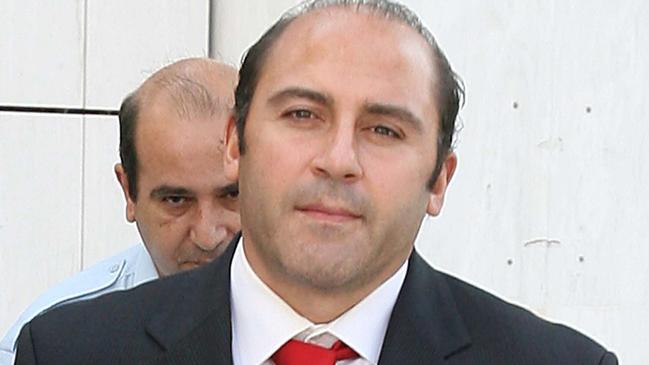
In his statement, he is thought to say that he lacked detailed information about Gobbo’s informer role against the Mokbel syndicate in 2005 and 2006.
Yet any lack of direct proximity did not stop her from blaming Overland when the unholy relationship between the star informer and Victoria Police soured from 2010.
A succession of police officers, serving and former, has also framed Overland as the ultimate decision maker.
The royal commission has heard that the then-assistant commissioner was briefed on the Mokbel investigations in September 2005, 10 days after Gobbo was signed up to ostensibly disrupt the criminal activities of the Mokbel family.
Her name was raised in top-level meetings in the weeks before her registration.
At the September meeting, according to police notes, concerns were raised about her motivation and welfare.
But Operation Posse (to smash the Mokbel syndicate), was intensified after her 2005 registration because her intelligence was so good.
Gobbo was also involved in Operation Briars, an investigation into the 2003 murder of male prostitute Shane Chartres-Abbott, as both an informer and potential witness.
Senior-Sergeant Ron Iddles went to Bali on Overland’s orders to get Gobbo’s witness statement. But Iddles refused to let Gobbo sign it. He believed it might trigger a royal commission.
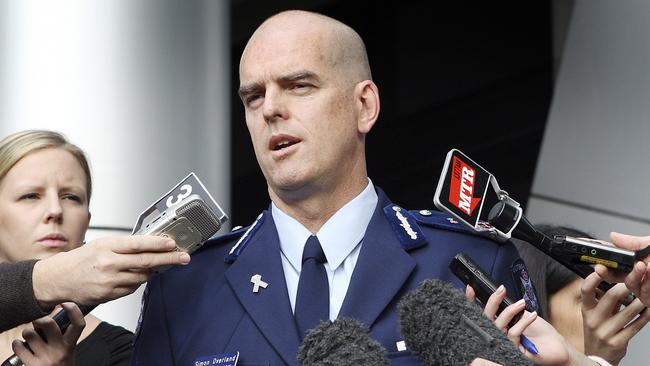
But Overland is believed to claim in his statement that he had little memory of Gobbo’s secret-agent role in the $30 million Briars investigation.
It is unclear if his statement addresses other issues with Gobbo’s use, such as her chief handler’s claim that Gobbo was spared coercive questioning about a client and a supposedly corrupt cop in 2006.
The handler said he believed Overland spoke to then Office of Police Integrity deputy head, Graham Ashton, to have her excused.
Overland does, however, address Gobbo’s shift from secret snitch to witness in 2009.
Highly-placed subordinates spoke against the proposal. Overland pushed for it.
He is expected to claim that he believed Gobbo needed to enter witness protection to reduce the risks against her.
Yet Gobbo refused because she did not want to change her name, her mother Mary was seriously ill and she did not trust the police.
The former chief commissioner is believed to state that he understood the potential consequences of the decision at the time.
It led Victoria Police to pay Gobbo a $2.88 million compensation settlement in 2010, and triggered a daisy chain leading to revelations about Gobbo’s use as an informer in the Herald Sun in 2014.
Ending Gobbo’s secret role as Informer 3838 was long discussed by senior police figures.
When doubts were first raised about her safety — and keeping her duplicitous behaviour from being exposed — it is believed Overland felt Gobbo was too close to gangland’s biggest players. He did not know whether she was a lawyer or a criminal.
Records elsewhere have shown that Overland spoke of “easing out” Gobbo in 2006 and 2007, though she remained a registered human source until 2009 and then continued to inform.
He thought Gobbo was incapable of looking after her own best interests.
Overland is expected to blame Gobbo’s behaviour in part for the police’s seeming inability to end her secret informer role earlier.
But he will make another point: as Gobbo was hooked on Victoria Police, the force was hooked on her.
DETECTIVE SAID GOBBO’S NAME WAS MUD
VIC POL SLAMMED FOR DELAYING CRITICAL FILES
He agrees Gobbo’s ethical position was compromised.
Overland is believed to state that he understood that Gobbo would not act for those she informed against (she did, again and again), and that her intelligence was not based on legally privileged discussions (it sometimes was).
He is expected to argue that Gobbo was to inform police about ongoing criminal activity, therefore bypassing the ethical requirement of confidentiality to clients.
In his statement, Overland is also thought to cite the public need for trust in the police. The irony is that Victoria Police officers potentially face legal sanctions because they improperly used Nicola Gobbo — to fight corruption.
